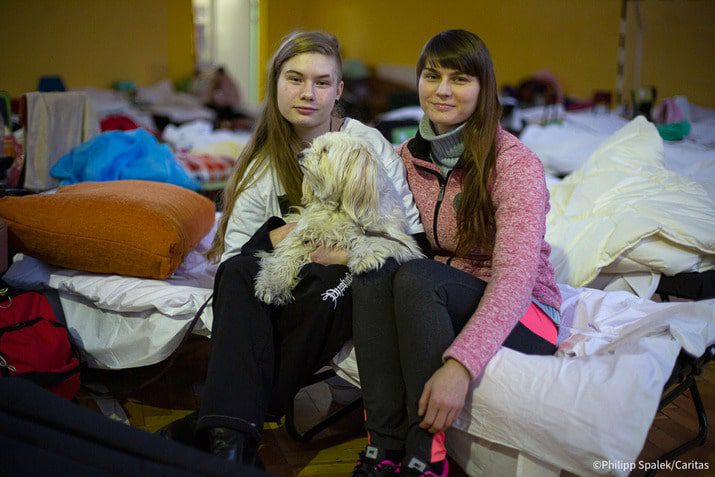Today, Caritas Europa launches its new analysis on the implementation of the Temporary Protection Directive (TPD), based on a survey carried out in 21 countries. A vast majority of refugees struggle to access affordable accommodation and other rights. We call for continued support to all people in need of protection.
Since the start of the war, over 8 million people have fled Ukraine to seek refuge in Europe. Caritas welcomes the unprecedented triggering of the TPD and similar temporary protection statuses in Europe that grant immediate access to a series of rights, such as residence permit, health, education, accommodation, access to the labour market and welfare support. However, important barriers to accessing these rights remain, as we reveal in our new publication “Europe’s welcome of refugees from Ukraine and lessons learnt”.
One of the key challenges from our findings relates to the difficulties for the refugees to transition from hosting families to independent living. This is due to an acute housing crisis across Europe. Many refugees are also in difficult financial situations with limited access to welfare state support. Those with disabilities often face additional administrative challenges and struggle to receive the allowances they are entitled to.
Furthermore, public healthcare services are often restricted and emergency services are the only option in many cases to receive care in several countries.
Difficult access to education and school also raises concerns about the continuity of education. Direct access to the labour market is one of the key benefits of the TPD; yet, in practice, refugees from Ukraine are often forced to take on low-skilled and low-paid jobs, typically below their level of qualifications. The lack of childcare facilities and kindergarten places also prevents women from working.
These challenges hinder social inclusion, which is further exacerbated by uncertainty about the future, including what legal status people will receive when temporary protection ends and when return to Ukraine will be possible.
Challenges for the future
Limited funding and solidarity fatigue make us doubt the future support to refugees from Ukraine, let alone the needed effort to overcome the challenges highlighted above. In addition, as asylum and reception systems in many countries are already strained, we are concerned that political will to support all refugees in the EU is decreasing and that governments will not commit to ambitious pledges to resettle people in need of protection.
While our analysis identifies some cases of differentiated treatment based on a refugee’s country of origin, the strong welcome of refugees from Ukraine shows that where there is a will there is a way. Thus, we urge European governments to leverage the good practices we have identified, such as involving local communities and diaspora, having efficient registration processes, wide provision of information and support, wider access to the labour market and more flexible reunification procedures.
Maria Nyman, Caritas Europa Secretary General, stated:
“Caritas provides support to all people in need, regardless of their origin, and we will continue to do so in line with our mission. We urge countries to build upon the solidarity shown to the people fleeing the war in Ukraine and to duplicate the good practices put in place to ensure a dignified welcome and protection to all refugees.”








